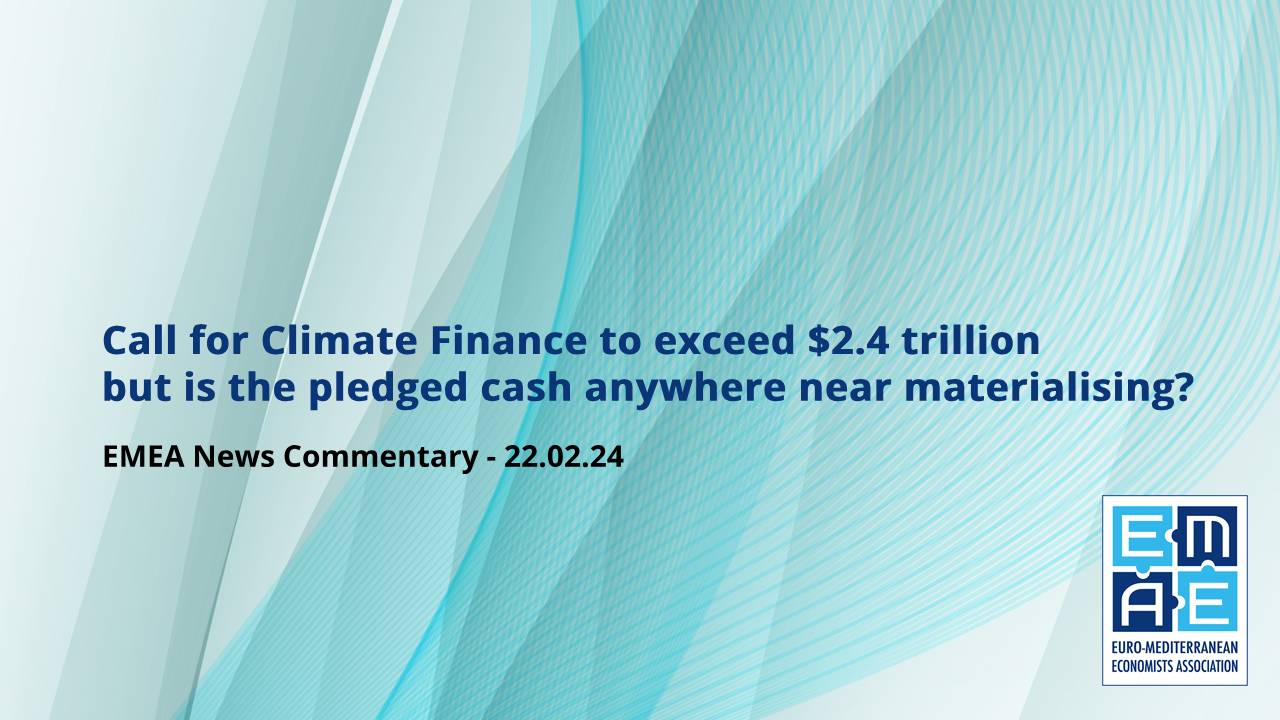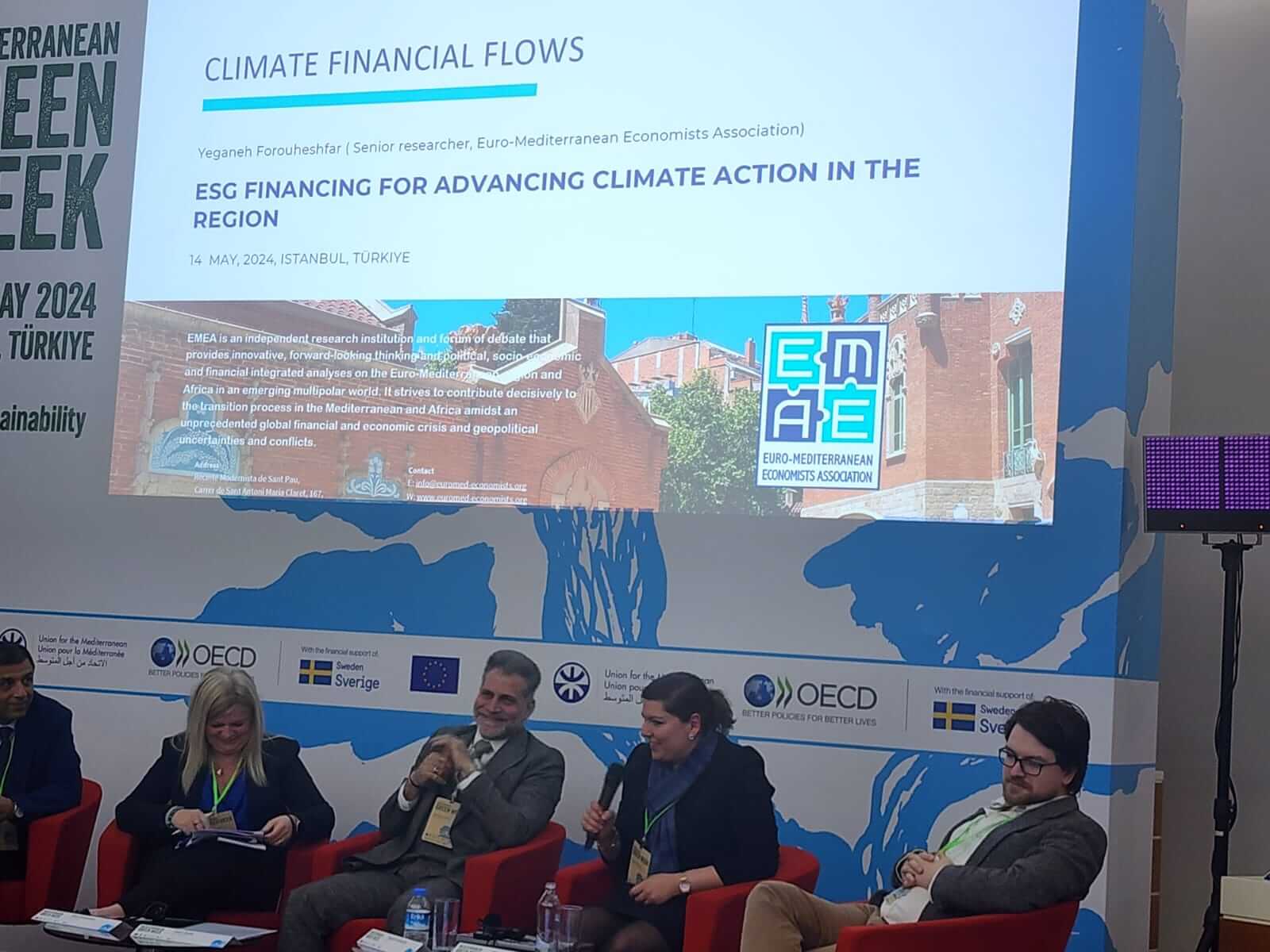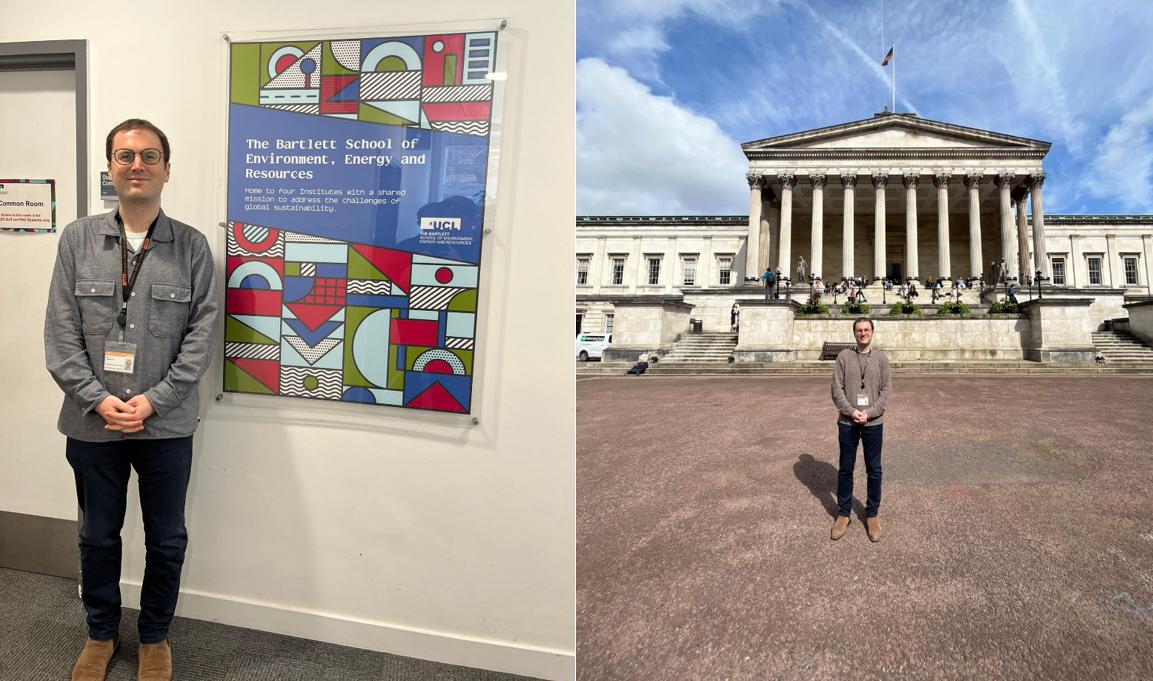The United Nations climate supremo has warned that for global climate change goals to be kept within reach, the world will have “to mobilise at least $2.4 trillion.”
As reported by Reuters, Simon Stiell, Executive Secretary of the UN Framework Convention on Climate Change, made the stark assessment during an address at the Azerbaijan Diplomatic Academy in Baku, the city due to host the COP29 Climate Summit in November 2024.
Referencing a December 2023 report from the High-Level Expert Group on Climate Finance, Stiell declared: “It’s clear that to achieve this transition, we need money, and lots of it – $2.4 trillion, if not more.” This figure would be excluding China.
In his first major speech since COP28 in the UAE, at which around 200 countries agreed to start transitioning away from fossil fuels, he told the gathering: “It’s already blazingly obvious that finance is the make-or-break factor in the world’s climate fight.” And he cautioned that if more finance wasn’t forthcoming, the gains made at COP28 would wither on the vine.
Onus on financial system to ramp-up funding
Reuters said that climate finance would be the primary focus of the Azerbaijan-hosted talks. Governments were under pressure to set “a new target post-2025 for raising money to support developing country efforts to cut emissions and adapt to the worsening impacts of climate change.”
But the report cautioned that it would be a challenge to come up with a new financial goal, given that it had taken until 2023 for countries to meet the 2009 target of mobilising $100 billion a year in climate finance by 2020.
Stiell advised that in the build up to COP29, the global financial system and multilateral banks should use the time to ramp up climate finance, urging “banks to triple the amount of climate grants and concessional finance by 2030 and triple the rate of private capital they mobilise.”
Post the UAE agreement, he also warned against countries hiding behind “loopholes.”
“The action we take in the next two years will shape how much climate-driven destruction we can avoid over the next two decades, and far beyond,” he said.
Funds struggling to materialise
Meanwhile, the world leader-endorsed landmark climate finance scheme, Just Energy Transition Partnerships (JETP), is struggling to raise the necessary capital, as reported in the Financial Times.
According to The Rockefeller Foundation, efforts to direct large sums of money via the scheme towards green transition in the developing world are “long on promise but short on progress.”
Dating back to the 2021 Glasgow climate conference, JETP numbered the United States, European Union and the United Kingdom amongst its donors. The likes of President Joe Biden, the EU’s Ursula von der Leyen and the then British Prime Minister, Boris Johnson, pledged their wholehearted support for JETP, promising to help mobilise finance for green transition in cash-strapped countries.
One pledge was to provide $20bn for coal-dependent Indonesia, so that it could shift towards renewables, with similar schemes being backed in South Africa, Vietnam and Senegal.
But The Rockefeller report revealed that lower-income countries had been forced to re-open coal and other plants because the previously pledged capital hadn’t been forthcoming.
The Charitable Foundation warned that the current JETP model “may not be scalable.” And they blamed a lack of consistent support from multilateral development banks, as well as “the premature announcement of deals by political leaders before funding had been secured.”
Its President, Rajiv Shah, said the JETP model had been “long on promise and short on progress.”
In its place, the Foundation is reported to have piloted a new JETP approach “to delivering real new money on the table”, which would see up to $165 billion going towards accelerating renewable power and grid capacity in the Philippines until 2050.
“The minute the numbers get contorted in ways that don’t actually stack up based on the original announcements, that’s when you lose political will,” said Ashvin Dayal, who heads up Rockefeller’s power and climate work.
He said that there had been a perception that richer countries had pushed for coal power plant closures in South Africa and Indonesia before definite job and wealth-creation plans had been finalised.
Time needed to catalyse investment
Towards the end of 2023, the FT were told by Indonesia’s outgoing president, Joko Widodo, that there was “tremendous” concern about the funds not materialising.
The Asian Development Bank, which provided technical support for the financing package, said it was committed to delivering “a just, affordable and reliable energy transition.” But the Bank admitted that “the planning, design, preparation and construction of large energy infrastructure is a big undertaking”.
Climate think-tank E3G’s head of fossil fuel transitions, Lee Roberts, said the “negligible” sums raised demonstrated that world leaders had set “unrealistic” expectations about JETPs. “There were billions of dollars promised to countries for certain things and that money doesn’t seem to be being moved from the Global North to the Global South,” he declared.
The Glasgow Financial Alliance for Net Zero, which is focussed on the mobilisation of private sector capital in Indonesia and Vietnam, said the work completed on JETPs had strengthened stakeholder understanding of future challenges. It had clarified “how to expedite change with further collaboration, necessary policy adjustments and public-private finance solutions.”
Elsewhere, the US State Department said it would take time to rethink a “decades-old development model” and to reform markets “to catalyse investment.” It added: “The test of success is not whether specific projects have gotten off the ground in a short period of time but whether we see sustained political will and aggressive, continued effort to turn the envisioned reforms into reality.”
UN climate chief calls for $2.4 trillion in climate finance | Reuters
Flagship climate finance scheme struggles to raise capital (ft.com)
COP28 Declaration on a Global Climate Finance Framework
Just Energy Transition Partnership with South Africa (europa.eu)





